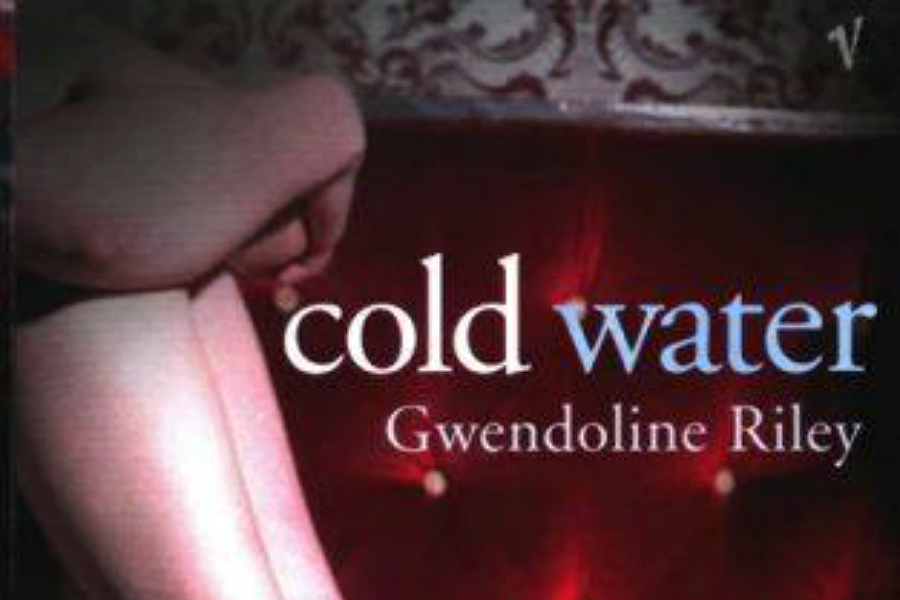Drowning not waving? British arthouse cinema

Filmmaker DW Mault talks exclusively to Laura Brown about his adaptation of Cold Water and how he’s tired of waiting…
There’s a silence associated with waiting. A pause, a ticking clock, the sounds of life outside. You can picture the scene in your mind. The principal actor sits, motionless and he waits.
For many of us this is the closest we get to our directorial debuts, these narratives and shorts we create in our imagination. Few of us make the leap of turning those stories weaving through our minds into reality on the big screen.
DW Mault is a Liverpool-born chap doing just that. But he’s also a man who is waiting, and fed up with it.
“I spent most of last year just waiting. This year, I’m going to do stuff.”
That stuff involves an adaptation of a novel by another Liverpudlian, author Gwendoline Riley, whose debut Cold Water emerged small but perfectly formed in 2002. It charts a period of time in the life of barmaid Carmel, living in Manchester surrounded by people, but totally alone. Daydreaming her way through the city, to escape or because that’s the way she is, we don’t know. Dry, witty and very very good, there are points when you can hear Carmel’s converse trainers slap against Manchester’s wet pavements as she walks the city.
DW has assembled an impressive cast. Carmel will be played by Tuppence Middleton, the actress who’ll start 2012 appearing in Clearskin alongside Sean Bean and will finish promoting her role in Danny Boyle’s Trance, presumably. Undoubtedly she will have an increased currency by then, good news for a director wanting to promote an independent British film.
He also managed a coup in snagging someone who’s a bit of a star on her home turf. One night DW receives an email from the Riley, mentioning a German actress hassling her about Cold Water. “Would you speak to her?” she asks. Duly, DW emails, says hi, and explains why he’s getting in touch. “Then it’s 3am one morning and this name pops up in my Facebook. While we’re chatting, I Google her. Led to believe she was a wannabe actress, in fact she was discovered on the streets of Berlin, just 17. Model, actress and musician, her last film was by Olivier Assayas. She’s really well known. At the last Berlin Film Festival, Berlin Vogue declared her one of the biggest names in the country.” It was award-winning actress Julia Hummer. He cast her as Katja, a character in the novel who forms a strange kind of friendship with Carmel.
With that we get back to the subject of waiting. DW and his producers at Hurricane Films are waiting for news about funding. The UK Film Council/BFI gave them £20,000 to produce test shots, making it possible to shoot some sample scenes and cast the film. The scenes they shot “terrified the living daylights out of people”.
“I shot the scenes the way I want to make the film; very slow, very quiet. They just don’t get it. Chris Collins at the BFI saw the scenes and said, ‘If I take them upstairs they’ll just say no. Don’t take it the wrong way, I’ve taken films by Werner Herzog upstairs and they’ve said no.’”
Instead he recommended DW make a trailer. Dress it up, add some music.
“I did it and thought it was terrible. He loved it.”
They still haven’t had an answer about the rest of the funding.
“We know people who have had a no. We haven’t had a no. But we haven’t had a yes. So we don’t know.”
It’s worrying, coming as it does when the Prime Minister says the BFI, who have taken over the commissioning role left when the Coalition government scrapped the UK Film Council, should focus on making films that make money. This worries DW. It suggests that a film will not be made based on its artistic merit but its commercial value. This is a film about being an outsider, about urban loneliness, based on what is essentially an existential novel. But if it has to be dressed up as something else to get past the funders, what do you have to do to convince filmgoers?
All this waiting means you think. And it irritates DW. “It can feel lonely making artistic films in a country that doesn’t seem to care about them.”
You have to grapple for funding. And here’s where Julia Hummer comes in. Producer Sol Papadopolous (Of Time and the City) met with a production company in Germany about a possible collaboration. They refused to believe Hummer had signed up for the film. She doesn’t make films anymore, they said, she doesn’t say yes to anything. With her onboard there is a greater chance of them signing up. It also means the film could be made in Hamburg, not Manchester.
“We are planning to shoot the interiors in Wales and the exteriors in Manchester. It’d be a bit of a shame in some ways because Manchester is really important to the book. And I love Manchester. I love it as a city… I spent a lot of my formative years there.
“When we first met the film council they asked why two people from Liverpool are making a film about Manchester. I’m not really bothered about all that… but I’ll issue a Pepsi challenge for anyone to name the last film that was written about, shot, filmed and set there. A lot of films, good and bad, are made in Liverpool, but not Manchester.”
It could be related to funding. That for many filmmakers it’s just easier to get cash from Europe, so that’s where the films are shot. Much has been raked over as to how successful the UK Film Council was. Figures obtained by The Guardian examined a period between 2006 and 2009 found it invested £41.1 million into 58 films, earning £8.1million. That’s a 20% rate of return. Films like The King’s Speech or Man on Wire, which returned 100% of its subsidy, are rare but the commercial success should free up the opportunity to produce something more artistic, risk taking and experimental, surely?
To scrap it, DW believes, was “one of the stupidest acts”. They had it right. “Every pound the UK Film Council put in they got five back… [scrapping it] was completely ideological”.
This is not to say artistic films aren’t being made. Ironically, some of the best filmmakers out there just also happen to be British. Steve McQueen, Lynn Ramsey, Andrea Arnold and Joan Hogg stand up against any in the industry, even if the mainstream don’t (currently) recognise their names. But it is the need to nurture talent as the UKFC did that will be important. DW points out Terence Davies, Derek Jarman; filmmakers funded on a purely artistic basis and nobody expected to see a return. If the state subsidies art, should it be compared to the commercial sector? The National Theatre, to some extent the BBC, are organisations intended to produce art and culture the commercial sector won’t touch. It’s not pity funding, it’s because art has to be made, and paid for.
“Australia is making the best cinema right now. When it’s looking for work they think, ‘is this making an artistic statement?’ They’re not thinking, ‘will we get our money back?’ And look at what’s being produced; Bright Star, Sleeping beauty, Animal Kingdom, Samson and Delila. Australia forgot about Hollywood and just making money; they are subsidising art”.
Perhaps there’s a reason why the arthouse directors we tend to fund in the UK do have a crossover with video art, perhaps we pigeon hole them. Think of Steve McQueen and John Akomfrah.
Perhaps we set too much stall in directors and filmmakers who know the right people and the right film references and talk a good game, but don’t make much. DW and I discuss one such filmmaker whose debut last year was feted and lauded when it was first released but slipped below the radar, and once the initial buzz wore off, felt a lot like the Emperor’s New Clothes. I’ll tell you who it is if I see you in the pub.
If all goes to plan, Cold Water will start shooting in September. A gallery installation is also planned. It will need a big festival push and plenty of support to make a splash, but with such intense and popular source material, it shouldn’t be hard.
Laura Brown
Follow Cold Water’s progress on Pinterest





